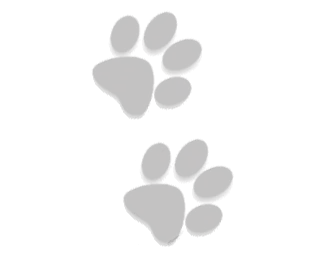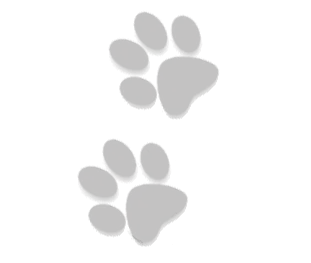Cat General Informations

Should I Declaw My Cat?
Declawing a cat requires general anesthesia and amputation of the last joint of each toe, including the bone and not just the nail as many think. Possible risks of this surgery include hemorrhage and nerve damage. Declawing can result in a gradual weakening of the legs, shoulder and back muscles, and could impair their balance, declawed cats must relearn to walk, just like a person to whom the toes have been removed. Declawing is like having your fingertips amputated.
Why not declawing?
People often believe that declawing their cats is a harmless and almost normal but it’s not the case at all. There are many consequences related to declawing, the most seen is a change of behaviour. A declawed cat might bite more often to compensate his insecurity of no longer having claws. Some cats stop going to litter box following the operation. In adult cats, this mutilation causes psychological trauma. MarieBengal does not recommend declawing.
Declawing Alternatives
1. trim the nails:
You can pick up scissors or nails trimmer and cut your cat’s claws yourself by holding it securely under one arm as you press your finger to pull out the claw and cut it with your other hand. Be careful, do not cut too close to the root, you could make it bleed, cut only the white part of the claw, the pink part being the nerve. This cut can be done once a month. It is better to accustom your cat to this when he is young by regularly cutting his claws and often manipulating his paws.
2. Use scratching post:
A cat can lose the habit of scratching furniture. If you proposed him a cat tree (or scratching post) to make his claws, he will never scratch your furniture. When your cat tries to scratch another piece of furniture, say "no" firmly, bring it up and rub its paws on the post. Of course, congratulate him when he uses the cat tree. Ideally, the scratching post or cat tree will be located near where he hangs out the most.
3. the soft paws:
Claw protectors are in fact small soft plastic caps designed to cover the claws of cats (and even dogs). They are recommended by many veterinarians and animal welfare associations, as they do not affect the quality of life of the cat and they do not cause any discomfort for the cat and fall naturally after 4 to 6 weeks. Thanks to these "caps,” you protect your furniture and the members of your family from scratch of your little cat. The claws are available in several sizes (kitten, small, medium or large) and in several colours (transparent, black, yellow, pink, blue, etc. Ask your veterinarian or a grooming salon that can provide you with these soft paws and even show how they work. Amazon and Ebay also have a large inventory of claw protectors.



Covid 19 and cats
No transmission from animals to humans has been documented anywhere in the world.
On the other hand, studies are clear and have shown that cats can be infected with the COVID-19 virus from humans and that infected cats can then transmit the virus to other cats. Fortunately, the vast majority of infected cats do not have serious symptoms and usually require no treatment.
Symptoms of Covid-19 for Cats
As in humans, a large majority of cats positive for covid-19 will not have any clinical sign, but some may have the following symptoms:
-Mild breathing problems.
-Sneezing.
-Mild cough.
-Runny nose / eyes.
-Lethargy.
-Loss of appetite.
-Digestive problems.
Treating cats with Covid-19
No treatment for cats currently exists on the market and no vaccine has yet been approved, but a vaccine is currently being studied and is expected to be available in 2023. The vast majority of cats that have covid-19 with symptoms heal well without treatment within 10 days.
For now the best thing to do is to wait that it passes and make sure that the cat has a lot of rest, well hydrated and avoid stress, because when a cat is stressed his antibodies do not work as well.


What is FIV?
Virologists classify feline immunodeficiency virus (FIV) as a lentivirus (or "slow virus"). FIV is in the same retrovirus family as feline leukemia virus (FeLV), but the viruses differ in many ways including their shape. FIV is elongated, while FeLV is more circular. The two viruses are also quite different genetically, and the proteins that compose them are dissimilar in size and composition. The specific ways in which they cause disease differ, as well.
What are the signs?
Early in the course of infection, the virus is carried to nearby lymph nodes, where it reproduces in white blood cells known as T-lymphocytes. The virus then spreads to other lymph nodes throughout the body, resulting in a generalized but usually temporary enlargement of the lymph nodes, often accompanied by fever. This stage of infection may pass unnoticed unless the lymph nodes are greatly enlarged. An infected cat's health may deteriorate progressively or be characterized by recurrent illness interspersed with periods of relative health. Sometimes not appearing for years after infection, signs of immunodeficiency can appear anywhere throughout the body. A positive test for FIV is not a mandatory death sentence. With a high-protein diet and aggressive treatment of secondary infections, a FIV-positive cat can lead a reasonably normal life span. "Feline immunodeficiency virus infection does not lead to acquired immunodeficiency syndrome in cats as often as the human immunodeficiency virus leads to AIDS in people." The largest threat to FIV-positive cats is secondary infections, such as bladder, skin, and upper respiratory infections. Kidney failure is also frequently seen in cats with FIV. These secondary infections should be treated promptly and aggressively in any cat, but especially with a FIV cat. So there is no proper treatment for FIV Cats but only treatment for secondary infection (Virus,bacteria,parasite...)
Treatment of FIV
Unfortunately, there is no treatment for FIV or Felv.
MarieBengal is negative for FIV and Felv, All our breeders have tested negative and every new cat that enters our cattery must be tested during its quarantine period. In addition, we do not make any external breeding.
All Marie Bengal Studs and Queens are tested negative to FIV.


Giardiasis and Bengal cat
Giardia is protozoa (one-celled organisms) that live in the small intestine of cats and dogs. Giardia are found throughout the United States and in many other parts of the world. Infection with Giardia is called 'giardiasis.'There are many things we do not know about this parasite. Experts do not agree on how many species of Giardia there are and which ones effect which animals. Veterinarians do not even agree on how common Giardia infections are and when they should be treated. Generally, it is believed that infection with Giardia is common in Catteries and Shelter, and unfortunately the Bengal cat is no exception.
The signs of Giardia
-Severes diarrhea.
-Bloody stools.
-The cat might not have time to reach the litter box.
Treatment of Giardiasis
There is a few treatment 100% effective against Giardia, Metronidazole for 14 days and Panacur (Febendazole) for 5 -7 days is up to date the best treatment for completly get rid of Giardias.
Marie Bengal wormed all is kittens with Panacur (5 days) at the age of 8 weeks and (5 days) again at the age of 10 weeks and all new cats are place into quarentaine where they received giardias prevention treatment, after we test with Real PCR.


Tritrichomonas T-foetus
Tritrichomoas infection is most commonly seen in colonies of cats and multi-cat households, where the organism is presumably spread between cats by close and direct contact. There has been no evidence of spread from other species, or spread via food or water. In one study, 31% of cats at a cat show in the USA were identified as being infected with this organism, suggesting that this may be an important, common, and previously unrecognized cause of diarrhoea in cats.
Although most information on T-foetus infection has come from studies of cats in the USA have identified several cases of infection in cats in the UK (mostly in cats from multi-cat households generally with more than one cat being affected), and it has also been identified in cats from Germany, Italy, Spain and Norway. In the UK, up to 35% of faecal samples from cats with diarrhoea are currently being found to be infected with young pedigree cats (particularly Siamese and Bengal) being significantly more likely to be infected.
The signs of T-Foetus
- Cow pie like stool that is often malodorous.
- Diarrhea.
- Bloody stools.
Treatment of T-F
The only way to get rid of Tritrichomonas T-F is with Ronidazole, Initial studies suggested that a dose of 30-50mg/kg once to twice daily for two weeks is capable of both resolving clinical signs and potentially eradicating the T. foetus.
Here at Marie Bengal we treat all new stud and Queens with Ronidazole, 3 weeks after treatment we do a real PCR test to be sure they are clear before meeting other cats. Up to date we continue to test negative to T-F.


Coccidiosis in Cats
Coccidia are small protozoans (one-celled organisms) that multiply in the intestinal tracts of cats and dogs, most commonly in kittens and puppies less than six months of age, in adult animals whose immune system is suppressed or in animals who are stressed in other ways (ex: change in ownership, stress, multi-cat house). In cats, most coccidia are of the genus called Isospora. I. felis and I. rivolta are both the most common species found in cats. Regardless of which species is present, we generally refer to the disease as coccidiosis. As a kitten age, he tends to develop a natural immunity to the effects of coccidia.
The signs of Coccidiosis
-Severes diarrhea.
-Bloody stools.
-Anorexia.
-Can cause death in young kittens if not treated.
Treatment of Coccidiosis
The Best treatment for Coccidios is Baycox However, an alternative drug is available. Unfortunately, this drug is not available in the United States yet, But the good news is that it’s available here in Canada, Australia, Europe by prescription. Study was done in kittens, administering a single dose of this new drug called toltrazuril (Baycox 5% suspension) to kittens 4-6 weeks old. It cleared coccidia completely from the kittens with a single treatment. This drug really kills coccidia instead of just stopping its spread.
At our Cattery all Kittens receive a full Baycox treatment at the age of 5 weeks and again at 9 weeks.


F.I.P in Cats
The F.I.P. is not a typical infectious disease. It is an immune-mediated disease, that is, the immune system of the cat, trying to protect himself against F.I.P, instead accelerates the progression of the disease. According to some studies 75% of cats worldwide regardless of their breeds will be exposed to a coronavirus, the viral group that includes the F.I.P. This exposure may or may not result in F.I.P, in 90% it doesn’t. However for some reason sometime the coronavirus will have a mutation and turn into a F.I.P, as soon as the signs appear the disease cannot be treated or cured effectively and in almost all cases P.I.F. is deadly.
The Signs of F.I.P
-Swelling of the abdomen.
-Nasal or ocular flow.
-Paralysis of the hind legs.
-Convulsions.
-Changing personality.
-fever, weight loss, anorexia, anemia.
Prevention of P.I.F
Unfortunately, there is no way to prevent or treat this disease and the tests are not very effective, but we remain informed of new scientific developments because a drug has been proven to work well against this disease in the United States in 2018, but unfortunately this treatment was not intended for animals and the drug company that owns it does not intend to produce it but they are currently looking for a partner who could market it. We could hope that this drug will be available in the coming years.
MarieBengal offers a guarantee against P.I.F.


HCM in Cats
Hypertrophic Cardiomyopathy (HCM) a type of abnormal thickening of the heart, is the most common cause of heart disease in cats. It is often an “occult” silent killer, and it can result in sudden death in cats. HCM is often diagnosed in middle-aged cats. Certain breeds, such as the Maine Coon or Ragdoll are more prone to this disease.
If this syndrome affects all breeds of cats, including “mixed” cats some breeds are more predisposed as Maine Coon, Ragdoll and Sphynx, British cats also (British Shorthair and British Longhair). This fact has leads to suspicion, as in humans or other animal species, that certain forms may be suggesting a possible genetic component. However, most of the time, the cause of HCM in cats remains unknown.
The Signs of HCM
-Rapid, difficult breathing.
-Extreme lethargy.
-Paralysis of the hind legs.
-Open-mouth breathing.
Treatment of HCM
Unfortunately, there is no way to prevent or treat completely HCM. Blood pressure monitoring, and medications can help make the heart beat more efficiently and f the presence of a life threatening blood clot is present, treatment may also include pain medication, platelet medication (e.g., Plavix), aspirin therapy and physical therapy.
Unfortunately, the prognosis for HCM is based on how well your cat responds to the medication and how advanced the heart disease is. Frequently monitoring and recheck veterinary examinations will be needed to manage cats with HCM and to give them the best quality of life possible. With supportive care and medication, some cats can live with HCM for years. However, it’s important to keep in mind that the heart medication doesn’t treat or cure the heart disease – it only prevents the disease from getting worse or from causing secondary complications.
MarieBengal offers a guarantee against HCM and our breeders are regularly screened by a cardiologist.
Marie Bengal is a serious breeder and we take no chances, all our studs, queens and kittens are FelV/Fiv Negative, we are Gardia, Cocidiosis and Tritrichomonas negative, our breeders are screened for HCM by a cardiologist and all our kittens leave at 12 weeks minimum and all are fully registered as purebred Bengal cats with certificates and come with a health warranty. You can be confident that you will adopt a unique and one of kind healthy Bengal kitten.
If you have any questions about the Bengal breed, please visit our FAQ or contact-us.


